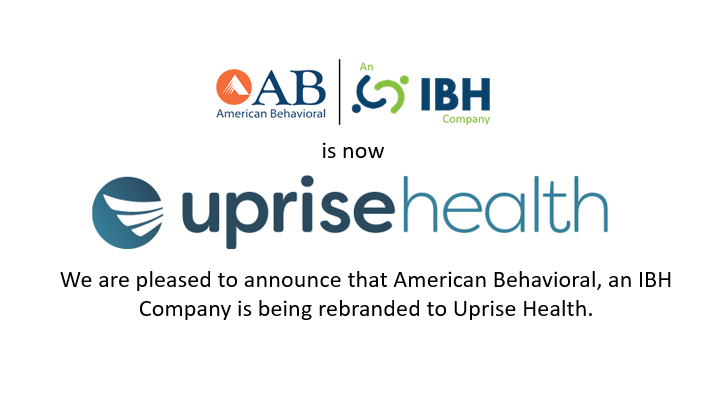Your Rights and Protections Against Surprise Medical Bills
When you get emergency care or get treated by an out-of-network provider at an in-network hospital or ambulatory surgical center, you are protected from surprise billing or balance billing.
What is “balance billing” (sometimes called “surprise billing”)?
When you see a doctor or other health care provider, you may owe certain out-of-pocket costs, such as a copayment, coinsurance, and/or a deductible. You may have other costs or have to pay the entire bill if you see a provider or visit a health care facility that isn’t in your health plan’s network.
“Out-of-network” describes providers and facilities that haven’t signed a contract with your health plan. Out-of-network providers may be permitted to bill you for the difference between what your plan agreed to pay and the full amount charged for a service. This is called “balance billing.” This amount is likely more than in-network costs for the same service and might not count toward your annual out-of-pocket limit.
“Surprise billing” is an unexpected balance bill. This can happen when you can’t control who is involved in your care—like when you have an emergency or when you schedule a visit at an in-network facility but are unexpectedly treated by an out-of-network provider.
You are protected from balance billing for:
Emergency services
If you have an emergency medical condition and get emergency services from an out-of-network provider or facility, the most the provider or facility may bill you is your plan’s in-network cost-sharing amount (such as copayments and coinsurance). You can’t be balance billed for these emergency services. This includes services you may get after you’re in stable condition, unless you give written consent and give up your protections not to be balanced billed for these post-stabilization services.
Certain services at an in-network hospital or ambulatory surgical center
When you get services from an in-network hospital or ambulatory surgical center, certain providers there may be out-of-network. In these cases, the most those providers may bill you is your plan’s in-network cost-sharing amount. This applies to emergency medicine, anesthesia, pathology, radiology, laboratory, neonatology, assistant surgeon, hospitalist, or intensivist services. These providers can’t balance bill you and may not ask you to give up your protections not to be balance billed.
If you get other services at these in-network facilities, out-of-network providers can’t balance bill you, unless you give written consent and give up your protections.
You’re never required to give up your protections from balance billing. You also aren’t required to get care out-of-network. You can choose a provider or facility in your plan’s network.
The following states that Uprise operates in address surprise billing for their residents in the following ways:
California
- An out-of-network provider cannot bill you an amount that exceeds your in-network cost-sharing requirement for (i) emergency services, or (ii) nonemergency services, including diagnostic imaging or lab services, provided by out-of-network providers at in-network facilities.
- If you have signed a consent to receive services and have elected to be responsible for the provider’s billed charges, an out-of-network provider may be allowed to balance bill you. The consent must disclose an estimate of the total amount you may be responsible for and that you can elect to receive services from an in-network provider.
- An out-of-network air ambulance provider cannot bill you an amount that exceeds your in-network cost-sharing requirement for covered services.
- California’s balance billing prohibition above covers enrollees of California state-regulated health plans.
- If you pay an out-of-network provider an amount that exceeds your in-network cost-sharing requirement for emergency services or nonemergency services as set forth in California’s balance billing protection, you may be entitled to a refund of the excess amount that you paid to the provider.
Mississippi
- If an out-of-network provider accepts assignment of your insurance benefit, the provider cannot balance bill you for any amount that exceeds your in-network cost-sharing requirement other than the applicable deductible or copayment.
- Mississippi’s balance billing prohibition above covers enrollees of (i) health maintenance organizations and (ii) insurance companies or any other entity responsible for the payment of benefits under a policy or contract of accident and sickness insurance in Mississippi.
Texas
- An out-of-network provider cannot bill you an amount that exceeds your in-network cost-sharing requirement other than the applicable deductible or copayment for (i) emergency services, (ii) nonemergency services provided by out-of-network providers at in-network facilities, or (iii) diagnostic imaging or laboratory services performed by an out-of-network provider in connection with a service performed by an in-network provider.
- If you have signed a balance billing waiver and elected to be responsible for the provider’s billed charges, an out-of-network provider may be allowed to balance bill you. The written waiver must disclose that the provider is out-of-network, provide an estimate of the amount you may be responsible for, and the circumstances under which you would be responsible for those amounts.
- A balance billing waiver cannot be used in an emergency or when you did not have a meaningful choice in providers.
- Texas’s balance billing prohibition above covers enrollees of Texas state-regulated fully insured health plans.
Please note there are no balance billing protections under Alabama, Tennessee or Pennsylvania law. However, you may still be protected under these federal balance billing prohibitions, and the Pennsylvania Insurance Department has taken responsibility for implementing federal protections within Pennsylvania.
When balance billing isn’t allowed, you also have the following protections:
- You are only responsible for paying your share of the cost (like the copayments, coinsurance, and deductibles that you would pay if the provider or facility was in-network). Your health plan will pay out-of-network providers and facilities directly.
- Your health plan generally must:
- Cover emergency services without requiring you to get approval for services in advance (prior authorization).
- Cover emergency services by out-of-network providers.
- Base what you owe the provider or facility (cost-sharing) on what it would pay an in‑network provider or facility and show that amount in your explanation of benefits.
- Count any amount you pay for emergency services or out-of-network services toward your deductible and out-of-pocket limit.
If you believe you’ve been wrongly billed, you may contact:
- The No Surprises Helpdesk at 1-800-985-3059;
- The California Department of Insurance at 1-800-927-4357, the California Department of Managed Health Care at 1-888-466-2219 or visit https://www.dmhc.ca.gov/FileaComplaint.aspx to file a complaint;
- The Mississippi Insurance Department at 1-800-562-2957 or file a complaint with the Mississippi Attorney General’s Office-Consumer Protection Division at https://www.ago.state.ms.us/divisions/consumer-protection/consumer-complaint-form/; or
- The Pennsylvania Insurance Department’s Consumer Services Bureau at 1-877-881-6388 or visit https://paebrprod.powerappsportals.us/EBR/PID/No-Surprises-Bill-Review-Request-Form/ to submit a No Surprises Bill Request Form; or
- The Texas Department of Insurance at 1-800-252-3439 or visit https://www.tdi.texas.gov/medical-billing/surprise-balance-billing.html.
For more information about your rights under federal law, visit https://www.cms.gov/nosurprises.
For more information about your rights under the relevant state law, visit the following state websites:
- https://www.insurance.ca.gov/01-consumers/110-health/60-resources/NoSupriseBills.cfm;
- https://dmhc.ca.gov/portals/0/healthcareincalifornia/factsheets/fsab72.pdf;
- https://www.midhelps.org/insurance-guide/balance-billing/;
- http://www.insurance.pa.gov/NoSurprises; and
- https://www.tdi.texas.gov/tips/texas-protects-consumers-from-surprise-medical-bills.html.


